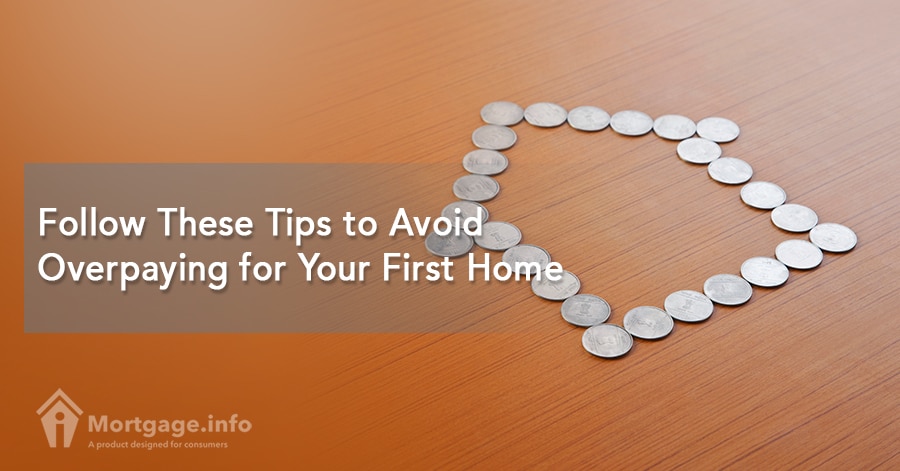
Buying your first home is exciting! But before you jump into that purchase, you should know a few tips to stop you from spending too much. Research shows that first-time homebuyers spend more money on a home than experienced buyers.
Compare Offers from Several Mortgage Lenders.
Just what makes first-time buyers susceptible to higher prices? We take a look below.
Keep Your Excitement Under Control
Believe it or not, your excitement over buying your first home can cost you thousands of dollars. You are eager to win the bid so you think you need to go out and bid the highest price. That’s not necessarily the case and experienced buyers know this.
How do you prevent yourself from doing this? The easiest way is by using a real estate agent. Let the professional guide your bids, all while staying within your budget of course. Another way is to have a maximum amount you want to spend in your mind. It doesn’t have to be the full amount that a lender approved you for either. You should only spend what you are comfortable with as this is a payment you could have for the next 30 years.
Don’t Get Emotional
Do you have your heart set on a specific area or even a specific home? Maybe it’s in an area that you grew up or an area you’ve always dreamed of living. If a home becomes available, it’s easy to get caught up in the emotion of getting that home. Not thinking clearly can cause you to bid more money than necessary for a home.
Again, a real estate agent can help you from making a rash decision. This neutral third party can help you see the issues with the home and help you understand a realistic price for the home. Remember, the home has to appraise for at least as much as the purchase price in order for you to get financing.
Click to See the Latest Mortgage Rates.
Do Your Research
Even if you have the best real estate agent on your side, you should still do some of your own research. Use sites like Zillow and Redfin to determine an estimated value for the home. You can also look to see what other homes in the area sold for recently. This will give you a ballpark figure of where you should be when you bid on the home.
Prioritize Your Needs and Wants
Before you even shop for a home, make a list of the features you want and those you have to have. This will help you narrow down the home choices. Your ‘wants’ list isn’t mandatory. They shouldn’t cause you to overpay for the home. Focus on the features you need in order to properly manage your family. If you find a home with some of the ‘wants’ consider it a bonus, but don’t let them influence the price, causing you to overbid on the home.
Use a Voice of Reason
In addition to your real estate agent, enlist the help of a family member or friend that can be your voice of reason. Include this person in on your list of needs and wants as well as your intended budget. This person can then help you keep your wits about you when you fall in love with a home. Having that voice of reason can help you avoid overpaying for a home because ‘have to have it.’
Don’t Skip the Inspection
The inspection report can also help you understand when you are overpaying for a home. If the inspection report comes back with several things wrong with it, you may want to re-negotiate with the seller. If the issues are expensive or will take a lot of work, it could be a sign that you are overpaying for the home. Use this as your ‘way out of the contract’ by including an inspection contingency in the purchase contract. This way if something is wrong with the home, you can back out without losing your earnest money.
Buying your first home is exciting, but it’s an easy way to overspend. Don’t let the excitement of becoming a homeowner cause you to spend more than necessary. Keep your wits about you, use a real estate agent, and consult with a family or friend that can help you make the right decision. Take your time with the decision and make sure the home is worth every penny that you pay for it.
